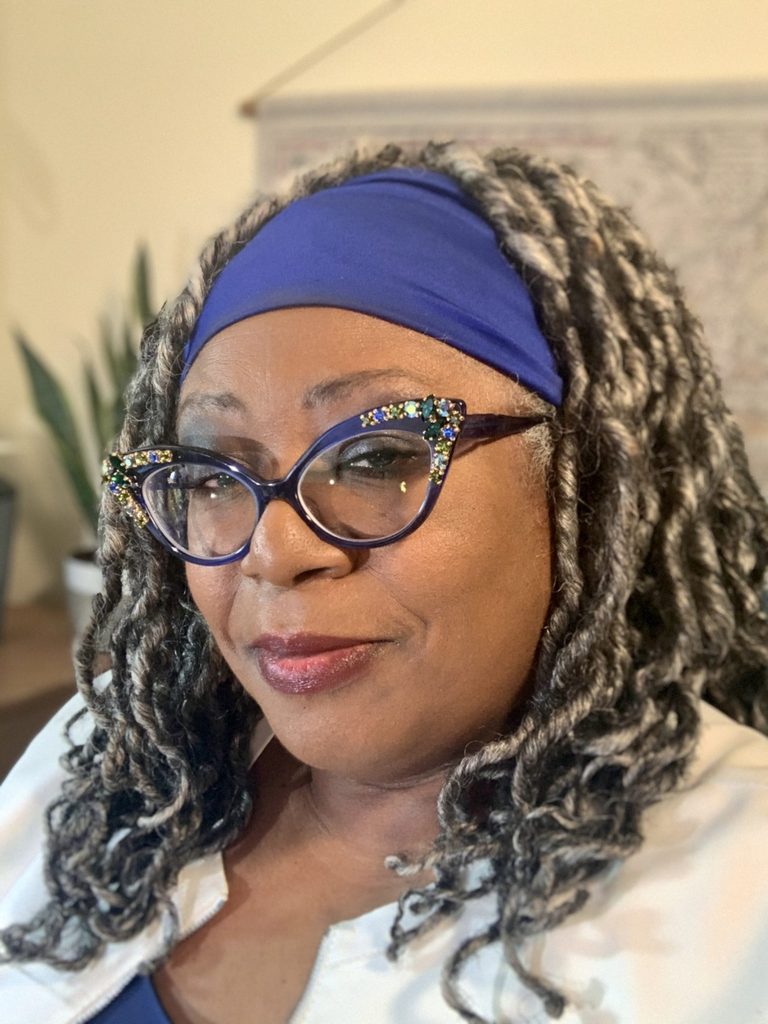
This past Wednesday January 25th, the Religion Department hosted Professor Anthea Butler for this year’s Ian Barbour lecture. The lecture series is held every few years in honor of Barbour’s founding of Carleton’s Religion department and his passion for opening discourse between religion and science that deepens our understanding of the modern world. Butler, Geraldine R. Segal Professor in American Social Thought at the University of Pennsylvania, is one of the most prominent historians of African American and American religion today. Her research and writing spans African American religion and history, race, politics, Evangelicalism, gender and sexuality, media, and popular culture. It was inspiring and stimulating to have Professor Butler visit Carleton, and we are very grateful for her illuminating contributions to discussions of religion on campus.
While the primary focus of Butler’s lecture, titled Which Nation, and Which God: Democracy and Religion in the 21st Century, was the present state of the American Evangelical movement’s connection to the Republic Party and the January 6th Capitol insurrection, she began with a step back: In order to understand the sway which southern, conservative Christianity currently has on our country, we must first understand how these groups developed their power. Thus, Butler began with the Religion of the Lost Cause, an interdenominational form of religion and culture in which groups of mostly southern Christians felt that their conception of democracy had been completely lost in post-antebellum America. This disillusionment with America laid the groundwork for the modern feeling of “declension” experienced by conservative and evangelical groups over the last 70 eras–the feeling that the U.S. as a whole is (and has been) headed downhill, and needs saving from a particular, conservative God.
Beginning with Billy Graham in 1952, Butler explained the recurring theme of evangelical leaders, aligned with conservative political candidates, “calling the nation back” to the Church and to the Bible, fully embracing the idea of America as a savior-nation, simultaneously favored and chosen by God to spread Christian democracy, yet also lacking in political leaders willing and dedicated to making this God’s values (the same values preached in Evangelical congregations across the nation) the law of the land. As we followed Graham’s rise to power, Butler explained how he and other leaders of evangelical movements came to have the ear of politicians and presidents in the 70’s and 80’s, steadily strengthening the connection between American Evangelicals and the Republican party. With the advent of the Christian Coalition, the relationship grew further: Churches across the country resumed handing out voting pamphlets to parishioners, who in turn voted with a newfound fervor; Fox News came onto the scene in the ‘90’s; Tea-Party Evangelicals, or “Teavangelicals” as Prof. Butler quipped, became a major political force and were here to stay.
When Donald Trump was elected president in 2016, he became an almost messianic figure for Teavangelicals. Here was a leader who embraced them as a group, took real political action to meet their demands, and spoke to the anxieties they had been feeling for decades. The union of the Republican Party and American evangelicals created a unified religio-political front, and the insurrection of January 6th, 2021 was nothing less than a religious event. Two events with explicit religious meaning took place beforehand, and religious imagery and practice was littered throughout the event. As 2023 kicks off and we move forward from January 6th, its legacy remains: religion is playing as large a role as ever in our country’s politics, democracy has indeed reached a certain instability, and the Teavangelical movement is showing few signs of stopping. So yes, it seems some Americans are engaging with a different God, the God of the Teavangelical movement. They feel He has chosen America as his City on the Hill, that His “White Light of Love” will bring America back to a nostalgic understanding of America as it “used to be” (before the Civil Rights Movement and other similar markers of progressive “victories”), and He will soon install a theocracy to enact policy in His will.
While the content of Prof. Butler’s talk was not easy to listen to, it encourages us all to take seriously the effect of religion on our own and on others’ lives today. As Butler said herself, “Religion is beginning to play a very big outside role in what is going on in our country,” and understanding how religion intersects with politics in our modern world is more important than ever.
By Chris O’Mara ‘24